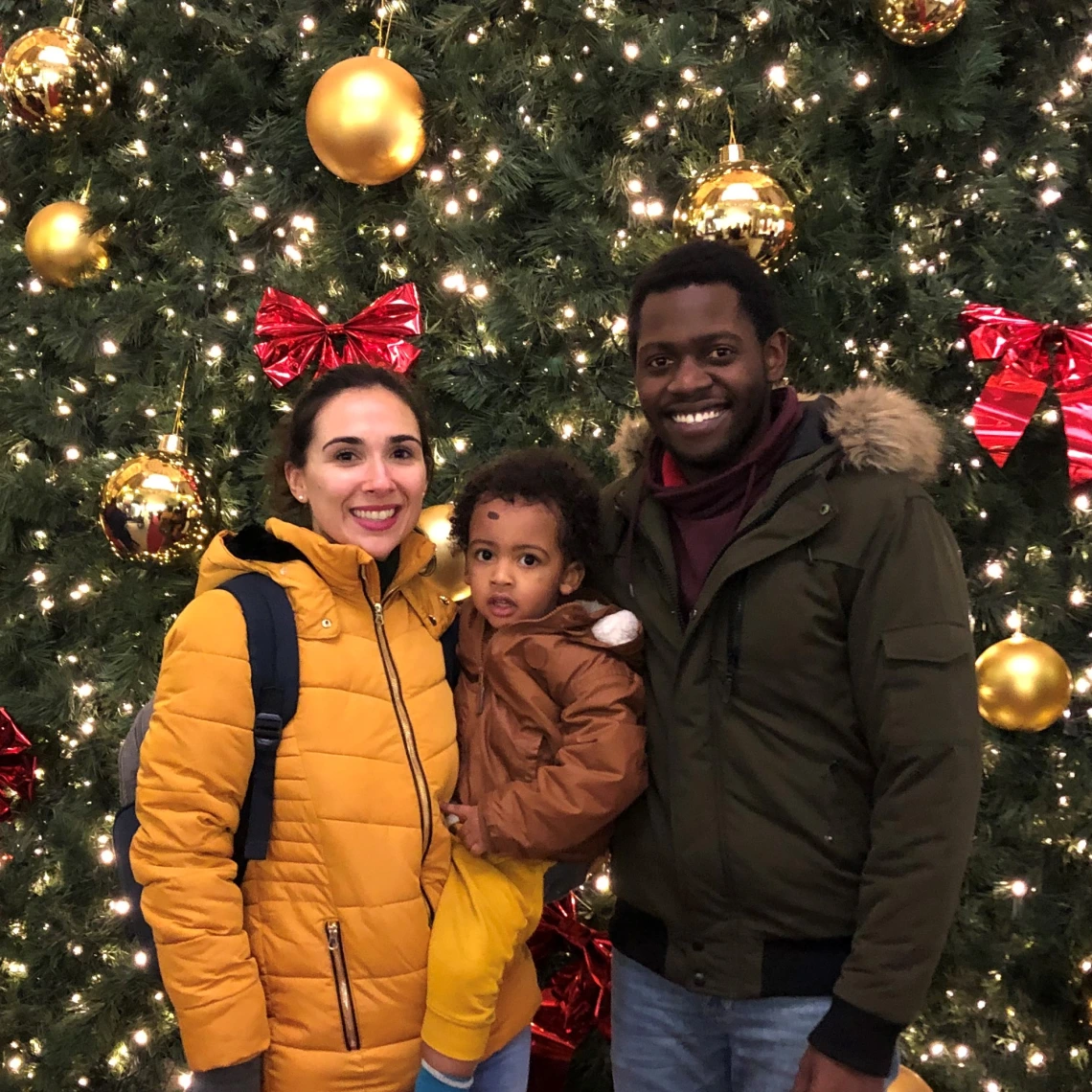Language, Collaboration, and, Above All, Dignity

By Elizabeth Labiner
Richmond Embeywa grew up in Nairobi, the youngest child in a family of nine. This familial position worked well for him, he says, as he had the benefit of learning from all his older siblings’ experiences. His passion for language emerged in two forms in high school: learning foreign languages and speaking on stage. Embewya represented his high school in theater competitions, and he and his classmates were even twice selected to perform for the president of Kenya.
Embewya’s enthusiasm for languages was cemented during his undergraduate work at Kenyatta University, where he served as the president of the German Club while he majored in German and History. The opportunity to pursue a graduate degree in the United States came to Embeywa’s attention during a study trip to Leipzig and Berlin:
I always wanted to reach the highest levels within academia and as a professor of German Studies at a university, and I naturally imagined this to be possible either in Kenya or in Germany. While attending one of the winter programs in Germany on scholarship, I met a professor from the United States who informed me about the program in the world languages department at West Virginia University.
His program at WVU focused on linguistics and second language acquisition theory. Embeywa reminisces, “I was fascinated by the different theories on language and language acquisition and the practical nature of applied linguistics. I doubled up on my focus as a Graduate Teaching Assistant and taught German at different levels within the basic language program.” He earned his Master of Arts in Teaching English as a Second Language (TESOL) in May 2018, then joined the UArizona community in pursuit of his PhD.
UArizona was the best option for him for several reasons. He explains, “The German program at UArizona supports interdisciplinary research through collaborations with other departments. Further, the PhD dual/joint degree program with the Universität Leipzig offers a great opportunity for us to experience a whole year in Germany where we learn and share with students and faculty from Leipzig.” In fact, Embeywa is currently in Germany, where he is best able to pursue his interest in German integration courses designed to orient incoming refugees, asylum-seekers, and migrants in the German way of life. He plans to review the curricula and conduct interviews with participants as he works to understand what models of integration, language and culture are operating in these courses.
Embeywa’s doctoral research pursuits are influenced by his experiences working with refugees; he has worked with refugee communities in multiple capacities while in the US, including translating documents and posters from English into Swahili, and joining community events where refugees share their experiences. He’s excited to continue and expand his work in the future:
I hope to do more when I’m back in the United States. While in Germany, I have been invited to visit a few integration courses and also had informal interactions with both participants and course instructors. From my own experiences and those shared by both participants and instructors working in similar settings, it is clear that fair and humane treatment of refugees goes a long way. Collaborating with individuals -- rather than assuming a savior mentality -- while working with marginalized communities helps safeguard dignity.
Embeywa’s teaching philosophy and methodologies reflect this belief; he approaches teaching with the conviction that the most important aspect thereof is working with your students to help them achieve their goals while allowing yourself to learn from the experience. As Embeywa continues his work, this shared learning stands to flourish in both the classroom and the community.

